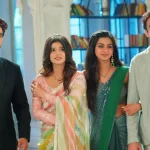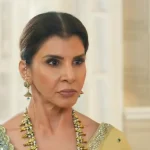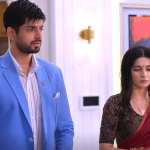Mukesh Khanna Criticizes Ekta Kapoor’s Mahabharat: A Clash of Traditional Values and Modern Adaptations
#MukeshKhanna #EktaKapoor #Mahabharat #TraditionalValues #ModernAdaptations

Mukesh Khanna, famously known for his portrayal of Bhishma Pitamah in the 1988 television adaptation of the Mahabharat, has openly criticized Ekta Kapoor’s modern rendition of the epic. Khanna’s disapproval stems from what he sees as unwarranted creative liberties taken in the portrayal of key characters, which he believes compromises the sanctity of the original narrative.
Khanna’s primary concern is the depiction of Draupadi, a central figure in the Mahabharat. He has expressed strong objections to the decision to give Draupadi a tattoo, viewing it as an unnecessary and disrespectful alteration. According to Khanna, this modern addition undermines Draupadi’s traditional and sacred representation as a symbol of dignity and virtue within the epic.
In addition to his critique of Draupadi’s portrayal, Khanna has also voiced concerns about the depiction of the Pandavas. He argues that in Kapoor’s version, the Pandavas are portrayed more like fashion models than the revered heroes they are traditionally known to be. Khanna believes this superficial portrayal diminishes the Pandavas’ true essence and legacy, as they are historically viewed as embodiments of righteousness and duty.
Ekta Kapoor’s adaptation of the Mahabharat has been noted for its modern and innovative approach, appealing to contemporary audiences. However, Khanna’s critique highlights the tension between maintaining traditional interpretations and exploring creative reimaginings of classic epics. His remarks bring to the forefront a broader debate about the balance between creative freedom and the responsibility to uphold cultural and historical integrity.
This controversy raises important questions about the adaptation of ancient texts for modern audiences. While contemporary versions can revitalize and introduce these stories to new generations, they also risk alienating those who hold traditional views. Mukesh Khanna’s criticism serves as a reminder of the diverse perspectives on how such revered narratives should be handled.
As the debate continues, all eyes will be on Ekta Kapoor to see how she responds to Khanna’s concerns. The outcome of this controversy could have a lasting impact on how future versions of classic epics are approached and received by audiences.










